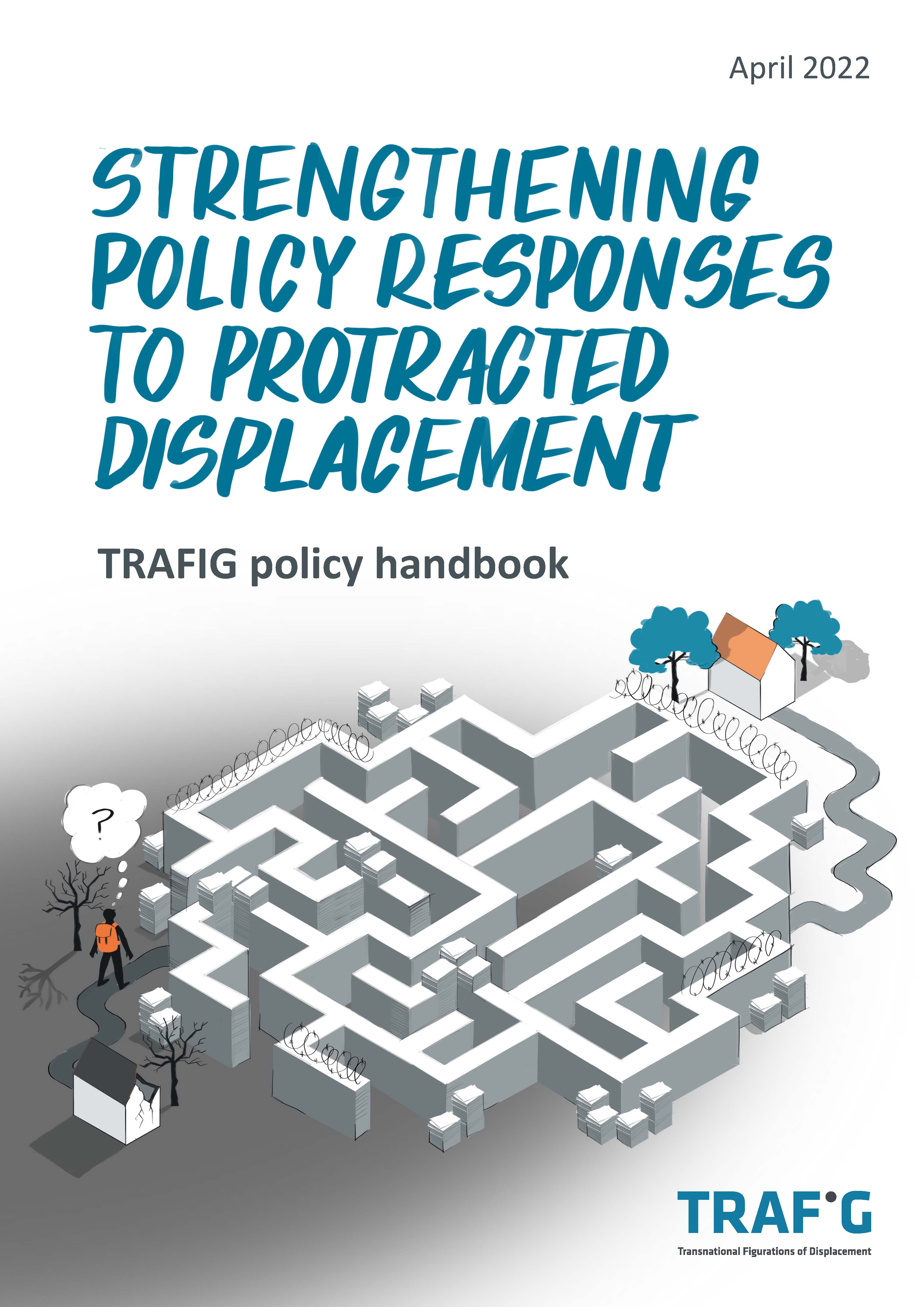TRAFIG Policy Handbook
Strengthening policy responses to protracted displacement
Displacement is undoubtedly one of the greatest challenges facing the world today. At the end of 2020, more than 82 million people across the globe were categorised as forcibly displaced, whether remaining within their countries of origin or having crossed an international border. If this group were a country, it would rank 20th in the world in terms of population, right after Germany. An increasing number of refugees – 16 million in 2020, or 4 million more than in 2016 – find themselves in a long-term situation of vulnerability, dependency, and legal insecurity, lacking, or actively denied, opportunities to rebuild their lives. Such situations are termed ‘protracted displacement’. While not captured in these statistics, internally displaced persons (IDPs) may also find themselves in situations of protracted displacement. While the protracted nature of many conflicts is a critical contributing factor, there is considerable room for improvement in policies and practices to more effectively address protracted displacement.
This is where the EU-funded Transnational Figurations of Displacement (TRAFIG) research project has aimed to contribute. Undertaking more than 2,700 interviews with displaced persons, policymakers, and practitioners in 11 countries across the Middle East, East Africa, and Europe, the TRAFIG project investigated the reasons why people end up in protracted displacement situations and what coping strategies they use, thus identifying possible courses of action for policymakers.
This handbook shares 10 takeaways for strengthening policy responses to protracted displacement that have emerged from this endeavour, with empirical examples and policy recommendations, as well as a non-exhaustive list of promising practices for inspiration. These 10 points centre on the TRAFIG project goal of identifying solutions that are better tailored to the needs and capacities of displaced persons.
Download the TRAFIG policy handbook here.
Authors: Martin Wagner, Caitlin Katsiaficas & Camilla Fogli (ICMPD)
Cite as: Wagner, M., Katsiaficas, C., Fogli C. (2022). Strengthening policy response to protracted displacement. TRAFIG policy handbook. Bonn: BICC. DOI:10.5281/zenodo.6490953
